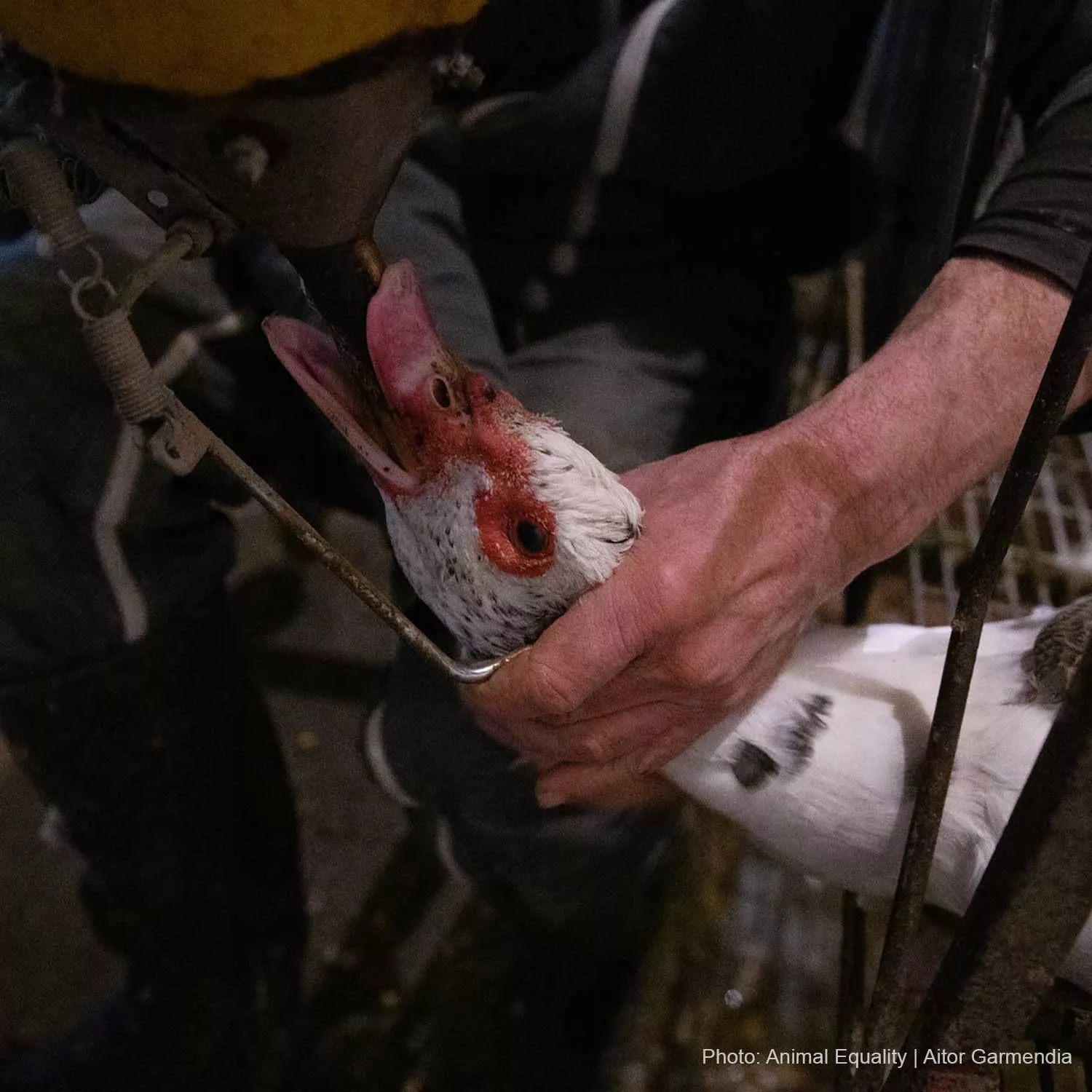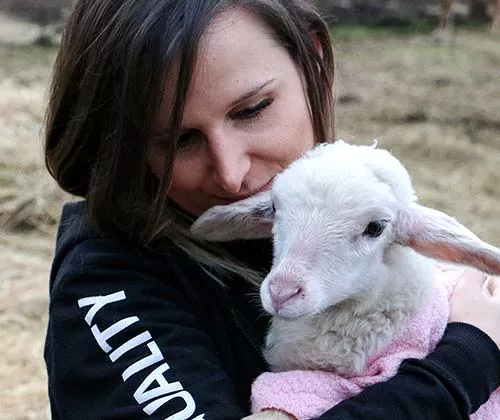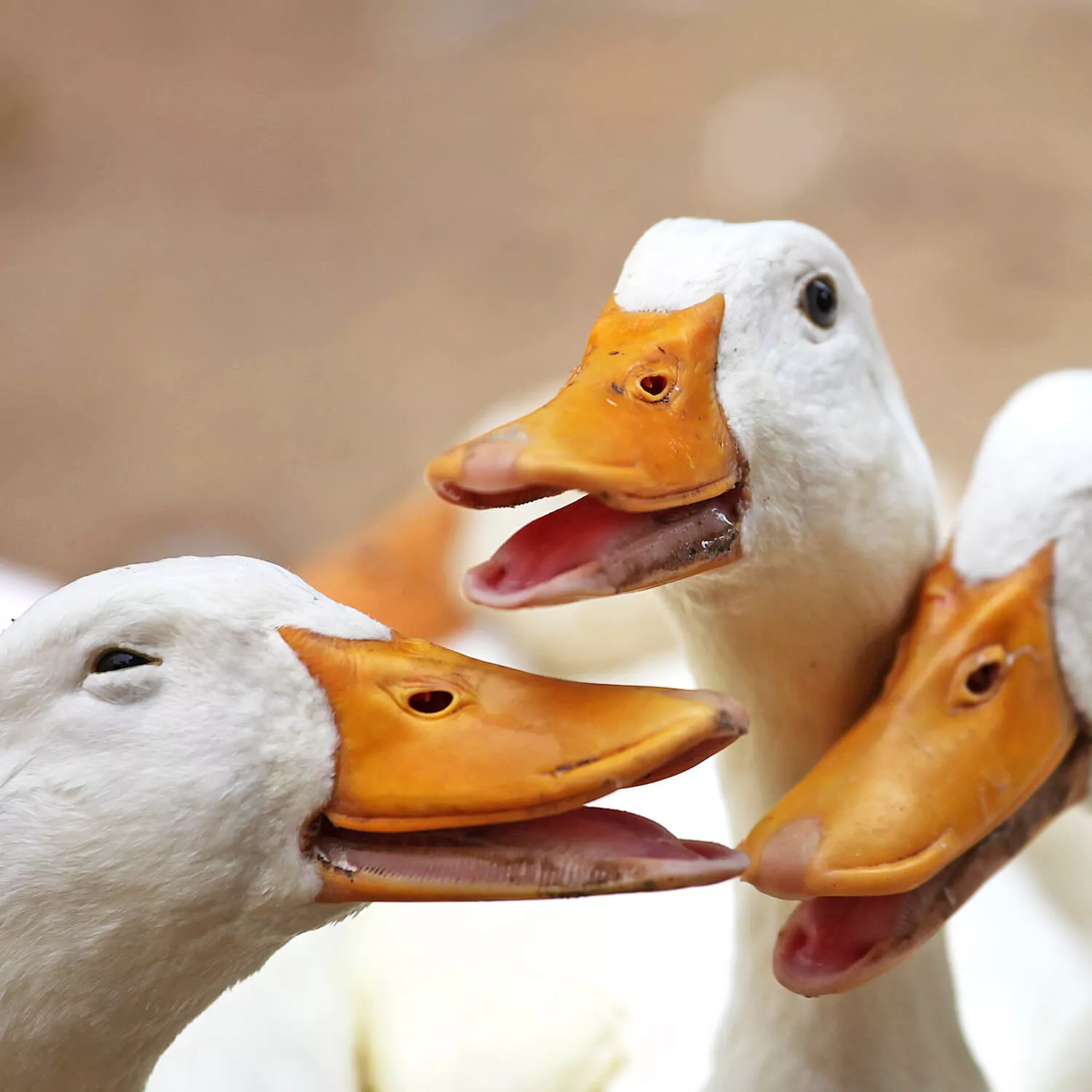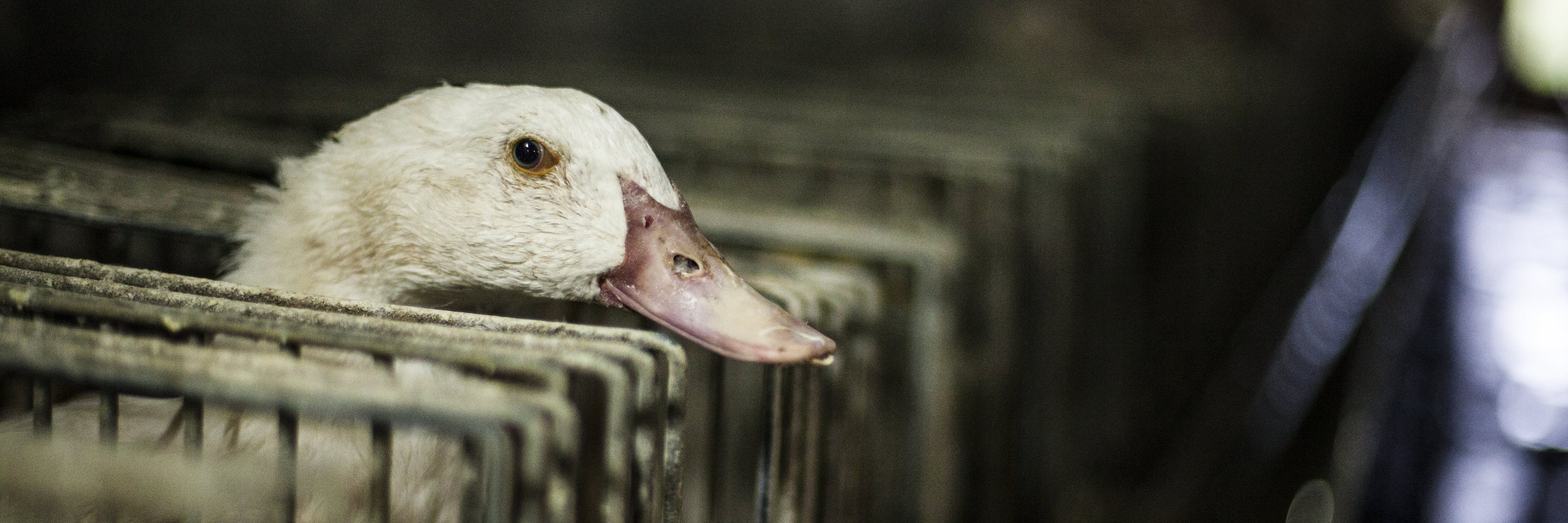
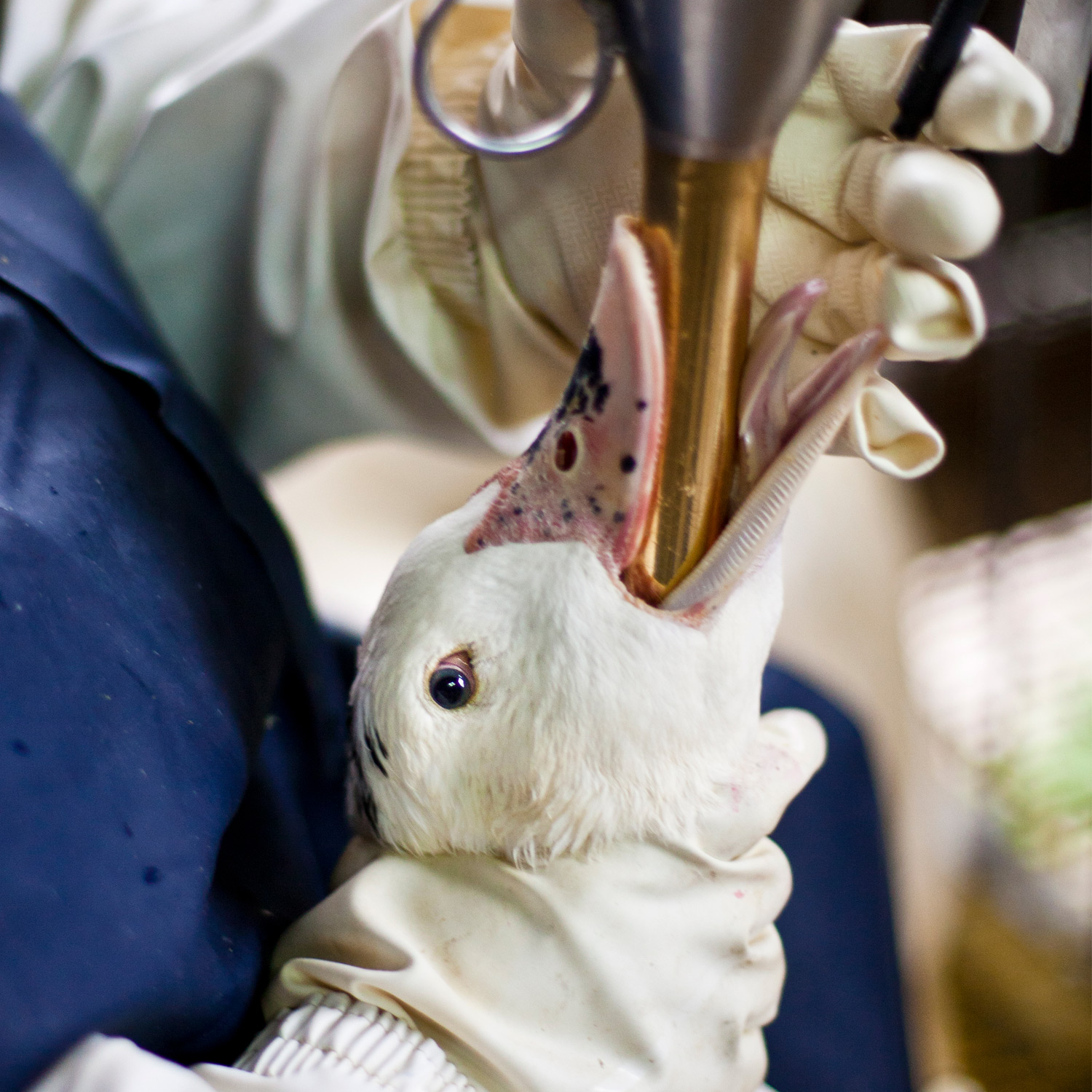
What is Foie Gras?
Worldwide governments have banned the production of foie gras, which includes force-feeding ducks and geese until their livers become enlarged and diseased.
Foie gras, French for “fatty liver,” is a luxury food produced by force-feeding ducks and geese. As industry employees shove foot-long tubes down the birds’ throats, they purposefully induce hepatic steatosis, or fatty liver disease, in these animals. After slaughter, the birds’ swollen and yellowed livers are sold whole or ground up into a pâté.
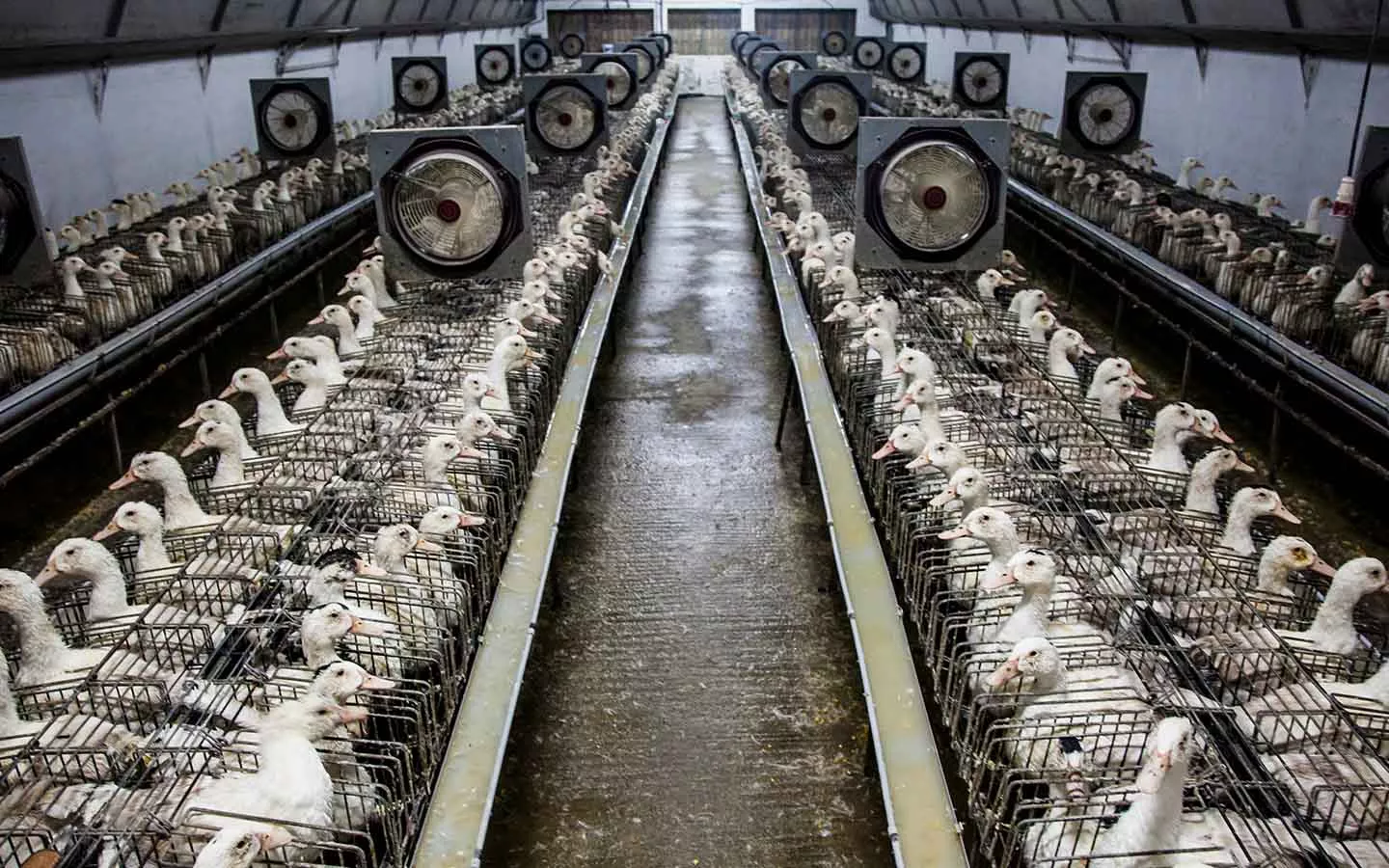
Why Is Foie Gras Cruel?
The production of foie gras has drawn controversy around the world for its unnecessary and cruel production methods, including:
- Shoving long metal tubes down the throats of ducks and geese multiple times per day and pumping their stomachs full of calorie-dense food (also known as “gavage”)
- Continuing to force-feed these eight-week-old ducks and geese for up to a month and then slaughtering them
- Confining birds in cramped pens or wire cages that are too small for them to turn around in, resulting in foot and leg injuries
- Inflicting multiple organ failures, injuries to the birds’ beaks and throats, and pneumonia
- Inflicting psychological anguish on normally curious and sensitive animals
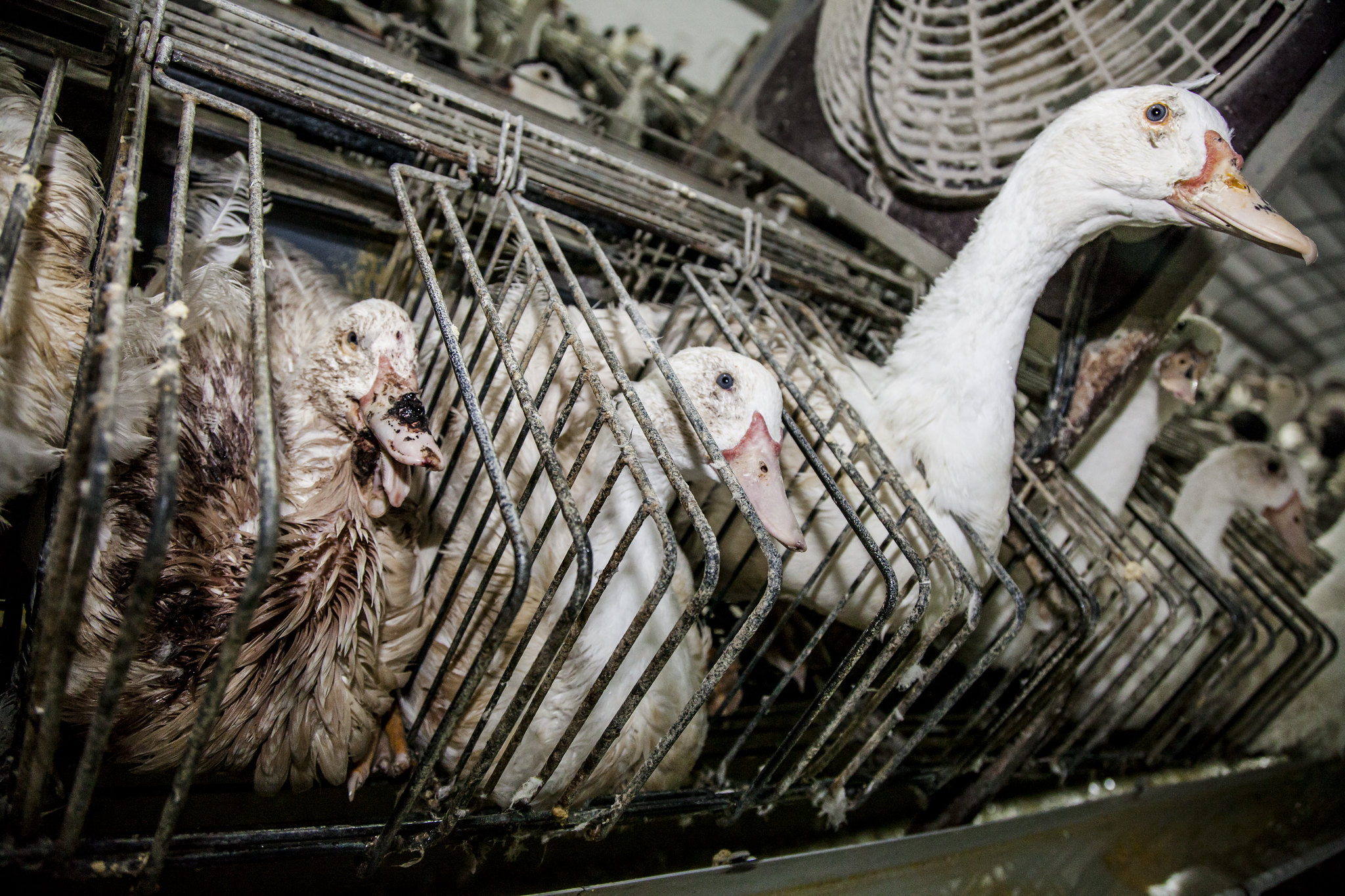
Which Countries Have Banned Foie Gras?
Foie gras production has been banned in several countries, including the UK, Germany, Czech Republic, Italy, Denmark, Finland, Norway, Poland, Turkey, Argentina, Australia, and Israel.
However, it’s important to note that the exportation of foie gras to and from other countries still poses a major problem. That is why India banned its import in 2014 following an Animal Equality campaign.
Because there’s still a demand for the product, large corporations continue to profit from the production of foie gras. In major cities around the U.S., many upscale restaurants still offer it as a menu item.
What’s it Like Inside a Foie Gras Farm?
Animal Equality has conducted multiple investigations at foie gras farms in France and Spain since 2012. Shockingly, one farm in France welcomes public tours and willingly showed us the force-feeding process.
At each of these farms, we found birds confined to small wire cages, suffering from breathing difficulties, eye infections, and broken wings and beaks. Many were covered in blood, while others’ lifeless bodies were found abandoned on the floor.
During these investigations, Animal Equality also found ducks and geese conscious during slaughter, left to bleed out slowly as their companions watched. Those who waited for their turns struggled to move and breathe as their inflamed organs stopped functioning. Others died before entering the slaughterhouses.
Health and Environmental Issues
Not only does foie gras violate animal welfare, but its environmental impact is cause for alarm. According to the US Environmental Protection Agency, foie gras operations have breached countless environmental laws.
Hudson Valley Foie Gras, the largest foie gras farm in the US, has violated multiple Clean Water Act obligations over the last decade and has faced numerous inspections with thousands of dollars in fines.
Foie gras also poses a significant risk to public health. Due to abuse and neglect, birds’ immune systems weaken, making them more susceptible to diseases such as avian influenza (bird flu). Avian influenza is also contagious to humans.
The most recent – and most deadly – avian flu outbreak in the U.S. took place in 2022. In 2021, France’s avian flu outbreak largely occurred on foie gras farms.
As the world continues to grapple with the Covid-19 virus, it has become apparent how quickly these zoonotic diseases can become a global pandemic.
How You Can Help
While the production of foie gras has raised eyebrows around the world, it is one of many animal agriculture processes taking place in our own backyards. Billions of pigs, cows, lambs, and chickens face similar fates, living with extreme confinement and abuse behind closed doors.
But that’s not the end of the story for these animals. Concerned citizens around the globe have joined the Love Veg movement, opting to replace animal products with delicious, satisfying, and sustainable plant-based alternatives.
Love Veg has even compiled a full range of recipes, tips, and tricks to make the transition as seamless as possible. To make an impact for ducks, geese, and other farmed animals, you can discover the endless world of plant-based ingredients today.
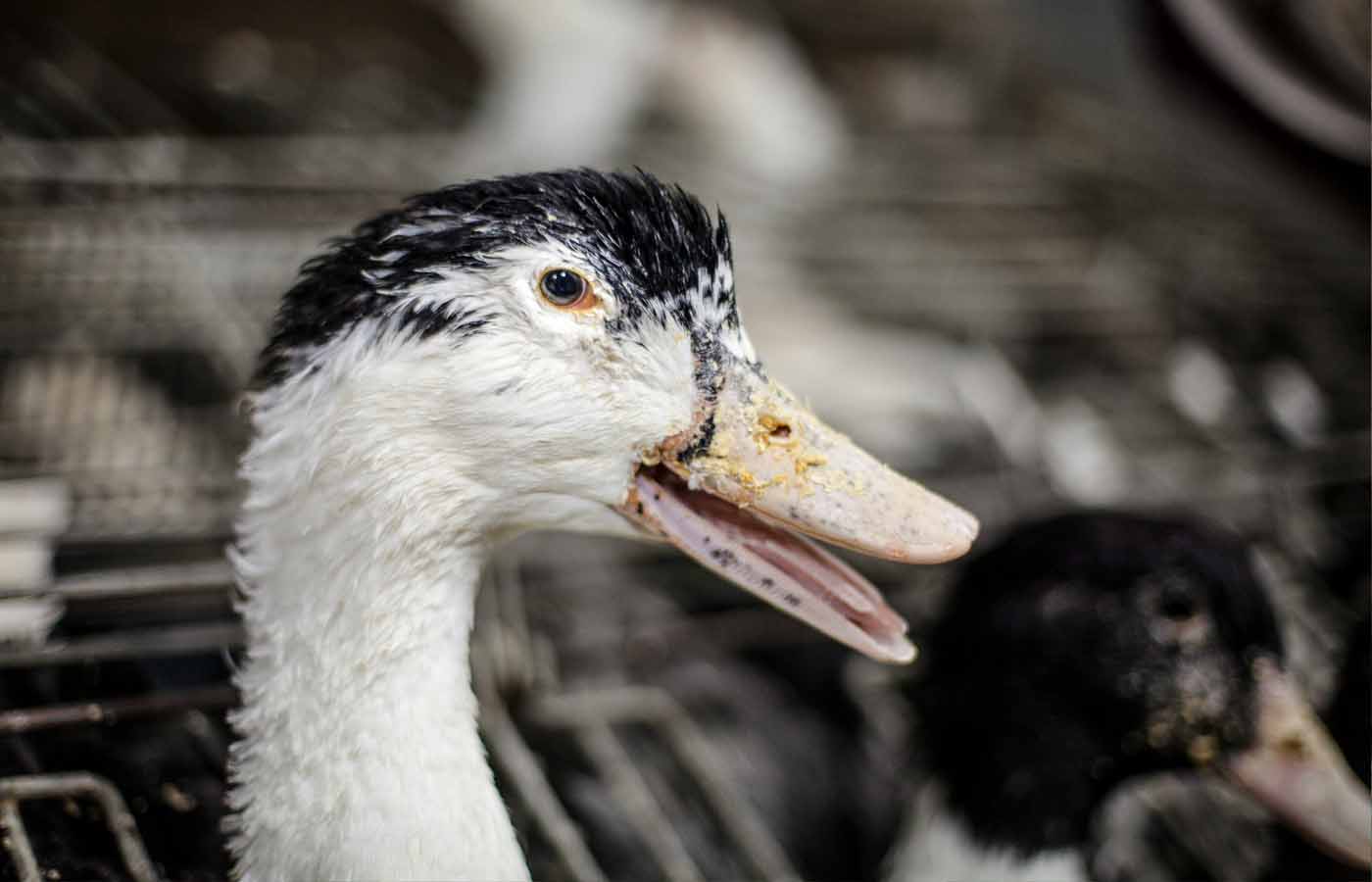
PROTECT DUCKS
Even before hatching from their eggs, ducklings communicate with their close‑knit families.
Protect these families by eating plant‑based and ditching animal products.

